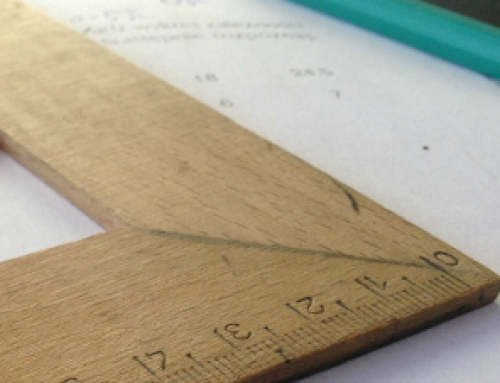Receive a gift of cash to use as a down payment from family? A rich uncle, or a significant other who has less than stellar credit but wants to contribute his/her share of the purchase?
There are multiple situations where someone might want to give a gift of cash towards the purchase of a new home.
- Wedding gift(s)
- Help for a first-time homebuyer
- Funds given by your family
If you’ve been offered or have received any of the above, or any other offer of funds to be used towards the purchase of a home, congratulations! You’re well on your way to realizing your dream. But you should also realize that, if you’re also applying for a mortgage loan, the lender will require that you document the funds being given as a gift. This can get tricky, especially when you have to ask for bank statement, and proof of transfer of the money from your wealthy Uncle Steve, or get Grandma to part with her financials. Not to worry though. If you let them know up front, it isn’t too difficult to provide the necessary documents. With these easy steps, you’ll be on the way to an approval and closing on that home in no time.
Acceptable donors
That’s right. You can’t use gift money from just anyone. In fact, gifts are only allowed from two sources:
- Relatives
- A fiancé, fiancée, or domestic partner
According to FannieMae.com, a relative is defined as your spouse, child/dependent, any blood relation, or someone related to you by marriage, adoption or legal guardianship.
More importantly, you may not use funds given by the builder, real estate agent, developer, their related affiliates, or anyone else who has an interest in the sales transaction.
Use of Funds
Gift funds may be used to purchase a primary residence or a vacation home. Check with your lender on limitations for garden-style condos, or multi-family homes. They are not considered acceptable funds for purchasing an income/investment property.
Gift funds can be used for all or a portion of the down payment, any of your closing costs or prepaids/reserves.
If you are putting less than 20% down in total, there may be a minimum borrower contribution (usually 5%). Check with your financial institution, as some loan types do not include this requirement, and some only require it for vacation home purchases involving a gift.
Documenting a Purchase Funds – Gift Money
Lenders will require a gift letter (see our Sample-Gift-Letter) to document the fact that the funds are indeed a gift, and do not need to be repaid, and also include the name and relationship of the donor, the date funds were given, and a few other items. Some lenders have their own gift letter template. Make certain to check with your lender so you can include all the information they require. It can be uncomfortable having a relative complete such a legal document. After all, a gift is a gift, and you don’t want to seem to be questioning their motives. But you also don’t want to have to go back to them later for a new letter with even more “legal-ese” language, or additional paperwork. Having a letter ready to provide when you apply for your mortgage can speed up the process. At a minimum it should include:
- Donor’s name
- Donor’s relationship to borrower
- Donor’s address and phone number
- Amount of gift
- Date gift funds were transferred
You may also need to include the following, depending on the amount of the gift, and if the individual giving the gift does not have a blood or immediate family connection:
- Verification that the person giving the gift has lived with the you (the applicant) for the past 12 months and will continue to live with you in the new residence.
- Verification of a history of both of you living at the same address. (This may be documented via a driver’s license, bills, bank statements, etc.)
Finally, and this is the part that can be difficult to document, you need to provide verification that the donor had the funds available, and that the funds were transferred directly from them to you. When you first complete the application, the funds do not need to have already been transferred. This can happen when you get closer to the actual closing. But you will need to document this transfer happening. Verification of donor funds and transfer can involve:
- A copy of the gift check and a deposit slip showing the funds going into the your account
- A copy of a withdrawal slip from the donor’s account and a related deposit slip into the borrower’s account
- A copy of the donor’s check, payable to the closing agent
- The settlement statement showing receipt of the donor’s check
- If funds are not transferred prior to the closing, additional documentation in the form of copies of a cashier’s check, certified check or other official check, will be required.
Some lenders also require verification that those funds were available for 60 days or longer (this is the same if you want to borrow money for a down payment). While this may seem like a lot of detail for something that is being given as a gift, in fact, it’s the lender’s way of ensuring that gift funds weren’t borrowed, which could later become a debt burden on the borrower.
Since deposit verifications usually go back only 60 days, if you receive the gift well in advance of your purchase (longer than two months ahead) a gift letter and documentation may not be required. This is because the funds will have “seasoned” in your account. Any unusual increase in your balances (for example, a gift received) during that 60 days will result in the need for further documentation. Your average monthly balance needs to support the amount of funds needed to close; closing costs, down payment, any reserves required by your lender. Since the gift funds are not a part of your average balance (unless you received them prior to that 60 day window) you do need to document their source. As an example: If you get married in the Spring and receive a gift of a downpayment, but are not closing on your new home until the Fall, your lender may not need a gift letter. The reason for this is, when they document your deposit balances, you will be showing an average balance in deposits sufficient to cover your closing costs.
Getting a gift to help with paying for a new home is a wonderful opportunity. However, when it comes time to take out a mortgage, those gift funds may need supporting documentation. Knowing how to document gift funds ahead of time can save you time and frustration when you’re going through the mortgage application process.














Follow Us